This article highlights five of the best books on blockchain technology that offer clear, practical, and in-depth knowledge. It presents a mix of beginner-friendly and advanced guides covering blockchain fundamentals, cryptocurrencies like BTC and ETH, smart contracts, DeFi, NFTs, and real-world applications.
Here are five highly recommended blockchain books based on depth, clarity, and practical coverage:
- Mastering Blockchain – 4th Edition
- Blockchain
- The Basics of Bitcoins and Blockchains
- The Bitcoin Standard – 1st Edition
- Blockchain For Dummies – 3rd Edition
1. Mastering Blockchain: Inner workings of blockchain, from cryptography and decentralized identities, to DeFi, NFTs and Web3, 4th Edition
This book offers a comprehensive and practical guide to understanding blockchain technology and its wide range of applications. It covers fundamental concepts like distributed ledgers, consensus protocols, smart contracts, cryptography, and decentralized applications (DApps), while also exploring advanced topics such as Ethereum 2.0, DeFi, NFTs, and emerging blockchains like Polkadot (DOT), Solana (SOL), and Avalanche (AVAX).
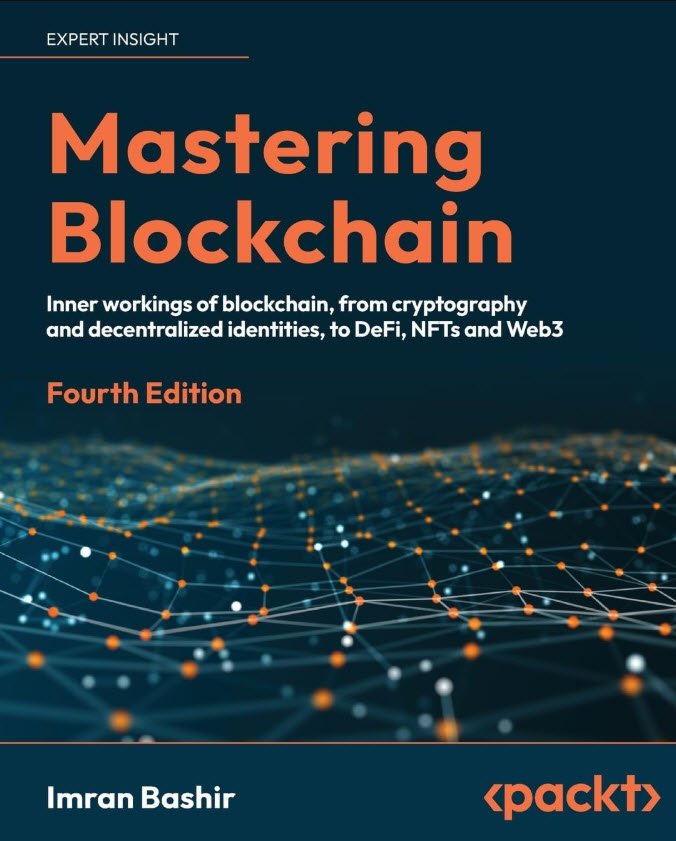
The book includes step-by-step tutorials for developing smart contracts and DApps using tools like Solidity, Remix, and Truffle, and addresses important issues related to privacy, identity, scalability, and security in enterprise blockchain systems.
2. Blockchain: The Comprehensive Guide to Blockchain Development, Ethereum, Solidity, and Smart Contracts (Rheinwerk Computing)
This book is a detailed and approachable resource for anyone looking to thoroughly understand the blockchain technology. The book begins with essentials, explaining what blockchain, Ethereum, and Solidity are, and then walks readers through the process of building their own blockchain including configuring peer-to-peer networks and managing miner accounts.
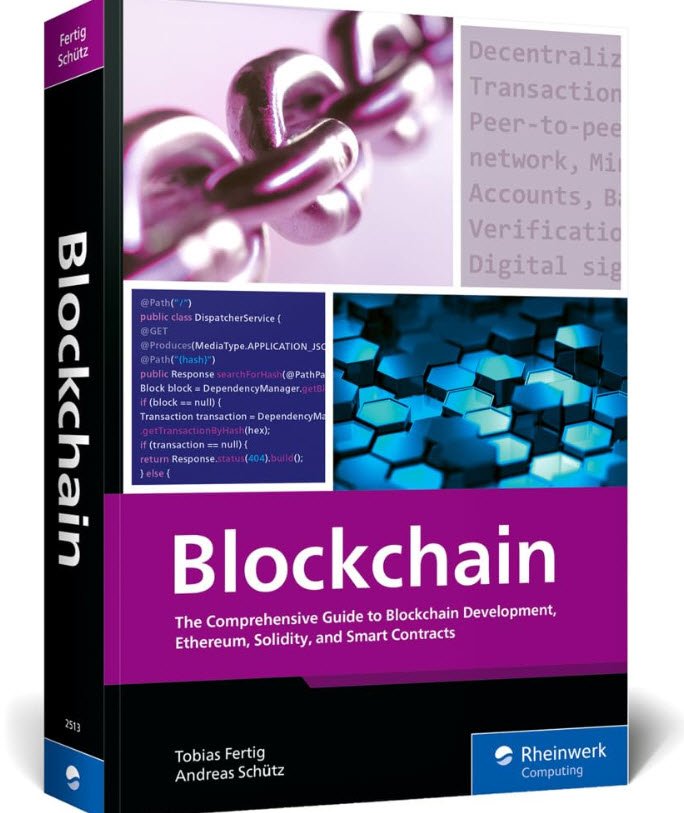
It also provides in-depth, step-by-step instructions and hands-on coding examples for developing smart contracts and decentralized applications (dApps) with Solidity, testing, debugging, and deploying them securely.
Topics such as Yul and Huff for smart contract development are also included in this book.
3. The Basics of Bitcoins and Blockchains: An Introduction to Cryptocurrencies and the Technology that Powers Them (Cryptography, Derivatives Investments, Futures Trading, Digital Assets, NFT)
This book written by Antony Lewis is a highly accessible comprehensive guide designed to demystify the world of cryptocurrencies and blockchain technology. The book provides clear explanations starting with the fundamentals covering what Bitcoin and blockchains are, how cryptocurrencies like Bitcoin (BTC) and Ethereum (ETH) function, and why these innovations matter.
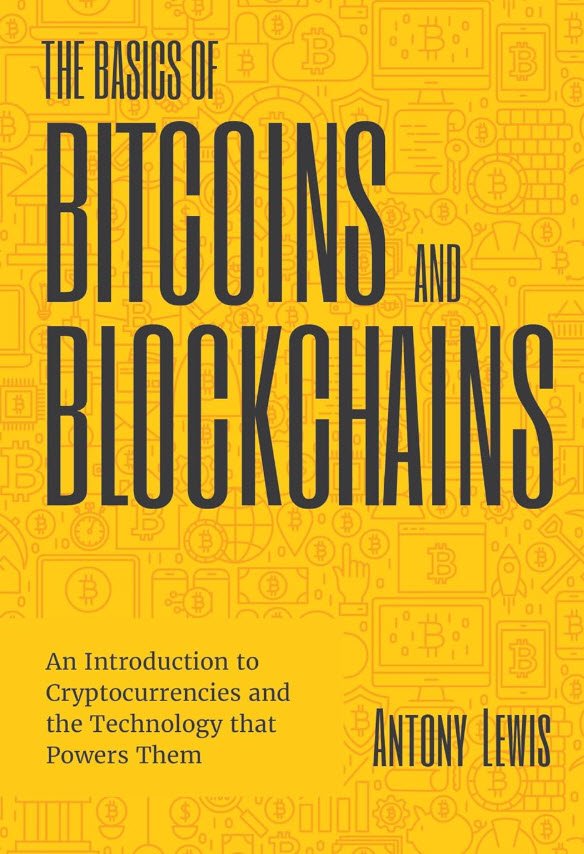
The book also covers the broader impact of blockchains, exploring applications beyond finance such as supply chain, healthcare, and digital identity, and discusses the evolution of digital assets including NFTs and tokenization.
4. The Bitcoin Standard: The Decentralized Alternative to Central Banking, 1st Edition
This book is a comprehensive exploration of Bitcoin within the context of monetary history. The book traces the evolution of money from primitive barter systems and metals to the gold standard and modern government debt to illustrate what constitutes sound money.
It also explains how Bitcoin (BTC), introduced in 2008 as a peer-to-peer electronic cash system, offers a decentralized and censorship-resistant digital alternative to traditional central banking systems.
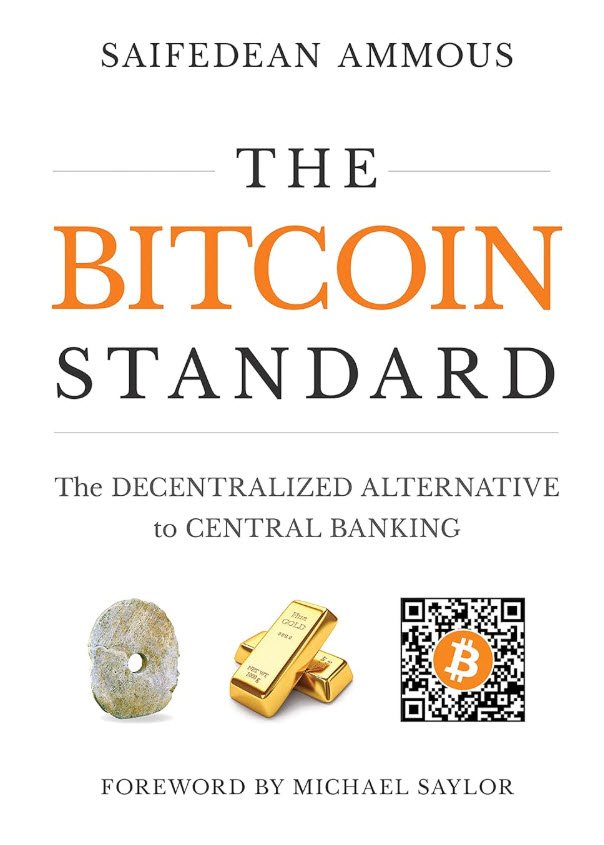
The author discusses Bitcoin’s predictable monetary policy, its role as a store of value akin to digital gold, and its potential to transform economic, political, and social systems by shifting monetary sovereignty from governments to individuals.
5. Blockchain For Dummies, 3rd Edition
This book is a beginner-friendly guide that introduces readers to the fundamentals of blockchain technology and its wide-ranging applications. It explains how blockchain underpins cryptocurrencies, NFTs, smart contracts, and important business and financial functions.
The book breaks down complex concepts into clear, easy to read language, helping readers understand how blockchain works and how to leverage it effectively.
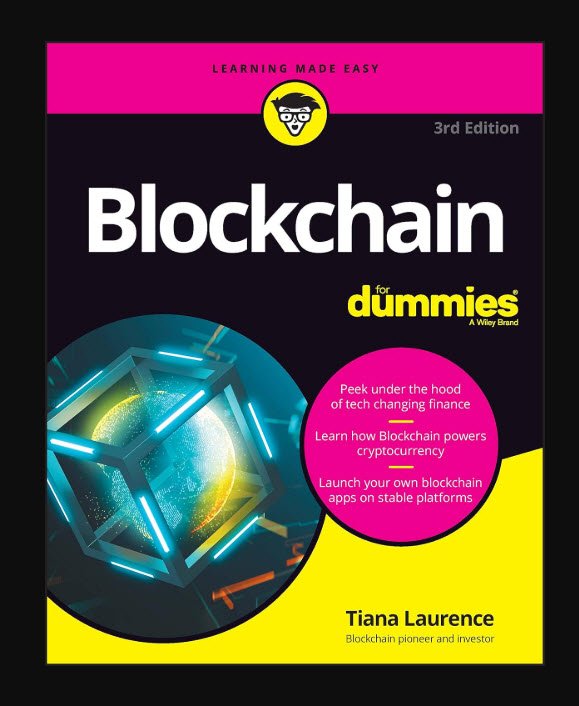
It also covers the latest token standards, emerging tools, and platforms and even launch their own blockchain applications on stable networks.


